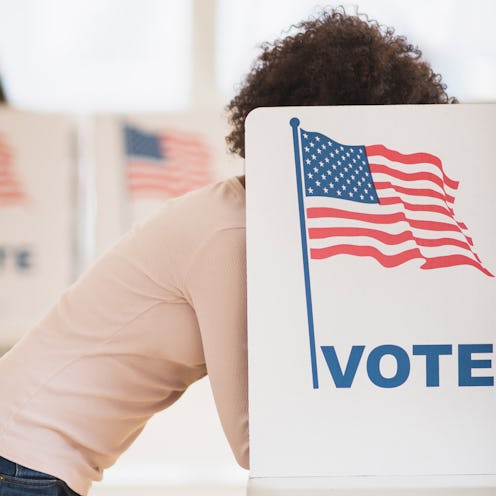We’re down to the last presidential debate of this election cycle, and the race for the White House seems closer than ever. Both Hillary Clinton and Donald Trump have been aggressively courting fence-sitting voters from the disaffecteds to the post-moderns. But the biggest implication is centered on one voting bloc: women. If the Oval Office goes to the former candidate, this country will have elected its first-ever female president in American history. If the latter wins, we will have invited an unprecedented return to the culture of sexism. Regardless for whom you vote, we (as women) represent the most impacted demographic, and it’s only right that we take part in a decision that will shape at least the next four years of our lives. Here, a breakdown of the issues that will affect us when we elect our next president in November. (Don’t forget to vote!)
With a judicial vacancy, the next president has the power to restructure the Supreme Court, which affirmed abortion rights in June. Donald Trump, who used to be pro-choice, wants to defund Planned Parenthood, the organization that gives us access to contraception and cancer screenings. On the other hand, Hillary Clinton has supported legislation to codify Roe v. Wade and seeks to repeal the Hyde Amendment that bans federal funding for abortion.
Today more women graduate from college than men, which translates to more women paying for school and bearing student loan debt. While Trump has yet to discuss his higher education plan, Hillary has proposed the "New College Compact" program, which will provide grants to states and colleges to reduce the burden of tuition and living expenses for students, as well as presented a plan for free education at community colleges.
Women constitute two-thirds of minimum wage workers yet earn only 79 cents to the dollar. Even worse, black and Hispanic women make only 60 and 55 cents to the dollar. "You're gonna make the same if you do as good a job," said Trump, who supports raising the minimum wage to $10 an hour. Conversely, Clinton has urged for that number to be at least $12. The federal minimum wage is currently at $7.25.
The United States is the only industrialized country without guaranteed paid family leave. Formerly a child-welfare activist and lawyer, Clinton aims to cap childcare costs at 10 percent of family income as well as offer twelve weeks of paid family and sick leave. Trump has proposed six weeks of paid maternity leave and the option for households to deduct childcare costs from their taxes. Unlike Clinton's, his plan does not cover new fathers.
Gun violence has been considered a “key driver” of homicide against women, and reports have indicated that it’s much easier for Americans to buy a handgun than it is for women to get an abortion. The National Rifle Association has endorsed Trump, who wants to expand gun rights while calling for the prosecution of violent criminals. Clinton seeks universal background checks for all gun purchasers, particularly domestic abusers.
Both candidates have swayed in gay and transgender rights issues. Five years ago, Clinton declared that "gay rights are human rights." She has supported same-sex marriage since 2013, with her campaign video featuring a gay couple. Trump is "very much for traditional marriage" but doesn't vehemently oppose gay marriage like other Republicans. He has even said that transgender people should be allowed to use whatever bathroom they want.
